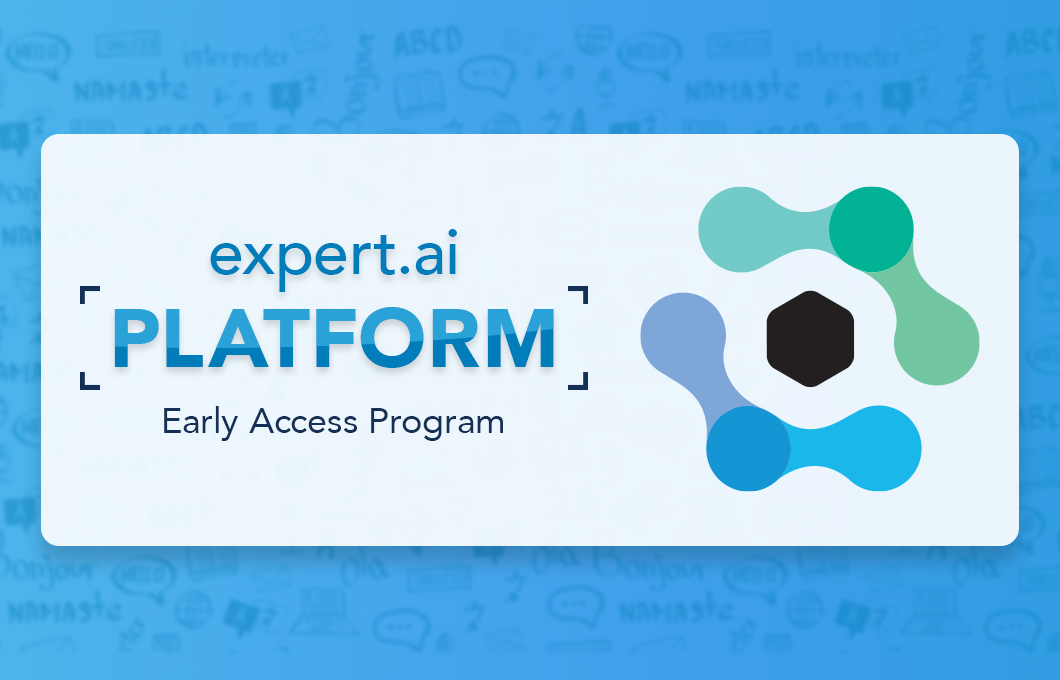
The promise of AI is, in some ways, already a reality. Thanks to natural language processing (NLP) we can successfully analyze language-based data and effectively communicate with virtual assistant machines. But these achievements often come at a high cost and require significant amounts of data, time and processing resources when driven by machine learning. Not to mention, you run the risk of less accurate results.
However, these obstacles aren’t a given. In fact, with the right strategy, you could avoid them altogether. Known as symbolic approach, this method for NLP models can yield both lower computational costs as well as more insightful and accurate results.
What is a Symbolic Approach?
When you were a child, you learned about the world around you through symbolism. With each new encounter, your mind created logical rules and informative relationships about the objects and concepts around you. The first time you came to an intersection, you learned to look both ways before crossing, establishing an associative relationship between cars and danger.
A symbolic approach works the same way, but for AI systems. Commonly used for NLP and natural language understanding (NLU), symbolic follows an IF-THEN logic structure. When an IF linguistic condition is met, the THEN output is generated. This makes it easy to establish clear and explainable rules, providing full transparency into how it works. In doing so, you essentially bypass the “black box” problem endemic to machine learning.
What Are the Advantages of a Symbolic Approach?
The flexibility to write your own rules is a significant advantage to using symbolic over machine learning for your NLP model, but that only scratches the surface of its benefits.
For instance, when machine learning alone is used to build an algorithm for NLP, any changes to your input data can result in model drift, forcing you to train and test your data once again. However, a symbolic approach to NLP allows you to easily adapt to and overcome model drift by identifying the issue and revising your rules, saving you valuable time and computational resources.
A symbolic approach also offers a higher level of accuracy out of the box by assigning a meaning to each word based on the context and embedded knowledge. This is process is called disambiguation and it a key component of the best NLP/NLU models.
A lack of language-based data can be problematic when you’re trying to train a machine learning model. ML models require massive amounts of data just to get up and running, and this need is ongoing. With a symbolic approach, your ability to develop and refine rules remains consistent, allowing you to work with relatively small data sets.
Is it Compatible with Machine Learning?
As powerful as symbolic and machine learning approaches are individually, they aren’t mutually exclusive methodologies. In fact, they work best when combined in a hybrid approach. In blending the approaches, you can capitalize on the strengths of each strategy.
Expert.ai designed its platform with the flexibility of a hybrid approach in mind, allowing you to apply symbolic and/or machine learning or deep learning based on your specific needs and use case.
Likewise, this makes valuable NLP tasks such as categorization and data mining simple yet powerful by using symbolic to automatically tag documents that can then be inputted into your machine learning algorithm.
You can also train your linguistic model using symbolic for one data set and machine learning for the other, then bring them together in a pipeline format to deliver higher accuracy and greater computational bandwidth.
What Are the Most Popular Use Cases for Symbolic and Hybrid Approach?
Your ability to take unstructured language data from documents, social content, and emails and turn it into actionable insights can impact a wide range of use cases. Industries like insurance, finance and media have all found impactful ways to apply symbolic and hybrid NL to common pain points.
Insurance
For example, the insurance industry manages a lot of unstructured linguistic data from a variety of formats. With expert.ai’s symbolic AI technology, organizations can easily extract key information from within these documents to facilitate policy reviews and risk assessments. This can reduce risk exposure as well as workflow redundancies, and enable the average underwriter to review upwards of four times as many claims.
Banking
Despite going through significant changes in recent years, banking still suffers from a lack of digitization. Conversely, customer expectations for service have increased, making it difficult to keep up with high volumes of customer service calls, emails and online information requests.
Automation and classification of email responses, knowledge-based FAQs, mortgage due diligence and even collections processing (according to priority) are just a few of the ways that expert.ai technology helps banking institutions solve challenges through the services supply chain.
Media and Publishing
The media and publishing sectors have become extremely competitive with the shift towards digital content. Users decide whether they want to read content in mere seconds, making effective user engagement essential.
Publishers can successfully process, categorize and tag more than 1.5 million news articles a day when using expert.ai’s symbolic technology. This makes it significantly easier to identify keywords and topics that readers are most interested in, at scale. Data-centric products can also be built out to create a more engaging and personalized user experience.
The symbolic approach is well positioned to revolutionize NLP. It’s flexible, easy to implement (with the right IDE) and provides a high level of accuracy. It also performs well alongside machine learning in a hybrid approach — all without the burden of high computational costs.
The question is: what can your organization achieve with a symbolic approach to NLP?


